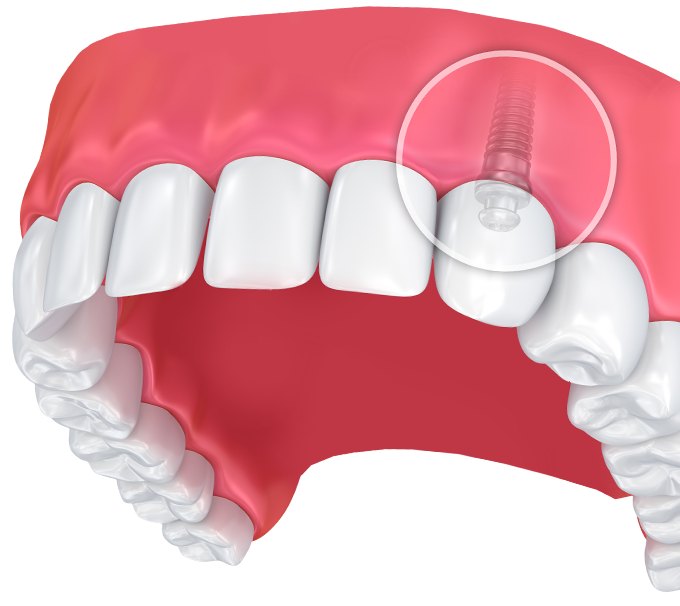
Restorative Dentistry
A restorative dentist primarily treats issues affecting the health, function, and comfort of your smile, such as damaged or lost teeth.
Restorative dentists also have the knowledge and tools to provide lifelike tooth replacement solutions that fit seamlessly.
When should I visit a restorative dentist?

- Bone Loss in Jaw
- Cracked Teeth
- Jaw Pain
- Loose Tooth
- Tooth Infections
- Tooth Pain
Improving the Health and Aesthetics of Your Smile
Restore Function and Comfort
Unhealthy teeth, gums, or bone tissue can be extremely uncomfortable. If left untreated, these conditions can also make it difficult to chew and enunciate. A restorative dentist can treat your smile from top to bottom to help you alleviate discomfort and restore proper function.The Right Fit
Restorative dentists use sophisticated tools to accurately measure the dimensions of your smile and deliver restorations that fit precisely.
Boost Your Self-Confidence
Many oral health issues can also affect the look of your smile. By treating your oral health concerns, a restorative dentist can also help your smile look its best.
.
- Bone Grafts
- Dental Bridges
- Dental Fillings
- Full Mouth Reconstruction
- Inlays
- Onlays
- Periodontal Treatment
- Root Canal Therapy
- Sinus Lifts
- TMJ Treatment
Dental Crowns Correct Multiple Issues at Once
Dental crowns can be used to correct functional and cosmetic issues that are affecting your smile.
Tools Used by Restorative Dentists
Many restorative dentists use state-of-the-art technology to diagnose your condition, plan the appropriate treatment, and deliver natural-looking results. Some tools include:
- Digital X-rays and Cone Beam Scanners: Restorative dentists often use digital X-rays to quickly and safely diagnose issues such as cavities or fractured teeth. Some offices are equipped with cone beam computed tomography scanners that visualize your biostructures in three dimensions and allow your dentist to more accurately perform your treatment.
- Detailed Impressions: If you need a restoration such as a dental crown, bridge, or denture, your dentist may collect traditional putty impressions or digital impressions to record the exact dimensions of your smile.
- High-Quality Materials: When fabricating restorations, dentists use tried and true materials such as gold and porcelain as well as incredibly durable and lifelike materials such as zirconia.
"The term 'restorative dentistry' is the integrated management of oral health problems and restoring of the mouth to a functional and esthetic state." Oral-B®
Insurance Coverage Often Applies to Restorative Treatment
Because restorative dentistry procedures are intended to improve the health of your smile, most treatments are considered medically necessary and are at least partially covered by insurance providers. Dental implants and some premium restorative materials will usually require paying out-of-pocket.
Talk to your dentist about maximizing your benefits or arranging financing.
Achieve a Healthy Smile Once Again
A restorative dentist can address issues both simple and complex to give your smile improved health, function, comfort, and aesthetics. To discuss your concerns with a restorative dentist, schedule a consultation today.


//assets/5501/220697/original-1519679819.jpg)


